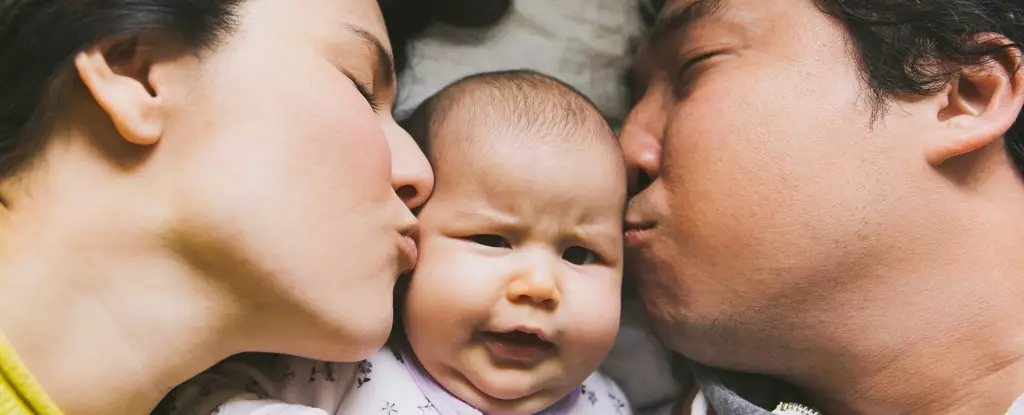In our fast-paced society where emotional expression often runs high, a simple gesture like kissing is seen as a universal sign of affection. However, when it comes to newborns, this well-intentioned act can harbor significant dangers that parents and caregivers often overlook. Through examining the inherent vulnerabilities of newborns and the potential consequences of seemingly innocent actions, it becomes crucial to alter our awareness regarding physical affection towards infants.
The Vulnerable Immune System of Newborns
From the moment they enter the world, babies are confronted with an array of pathogens. Unlike older children and adults who possess developed immune defenses, newborns emerge with an immature immune system. For the first few months after birth, their ability to fight infections is significantly diminished. This vulnerability is exemplified by their limited levels of essential immune cells, which compromises their ability to defend against illnesses that may present as minor annoyances in older individuals but can lead to severe complications in infants.
The consequences of exposing newborns to infections can be catastrophic, particularly in cases like neonatal herpes. While an adult may manage a cold sore caused by the herpes virus, a newborn exposed to the virus faces a drastically different reality—with the potential of developing life-threatening illnesses affecting vital organs.
Bacterial infections are another area of concern; bacteria such as Group B Streptococcus (GBS) can reside undetected in adults yet pose serious threats to newborns. These infections can culminate in severe conditions like sepsis, pneumonia, or meningitis, potentially endangering the child’s life. Furthermore, E. coli strains, which are typically harmless to older children and adults, can elicit severe responses in newborns, leading to dire consequences.
For parents, the realization that their child is susceptible to common infections can be alarming. Understanding that kissing a newborn on the head or face can facilitate the transfer of harmful pathogens emphasizes the need for vigilance. A proactive approach among visitors is crucial—asking friends and family to refrain from kissing the baby is not merely precautionary but can be life-saving.
The Importance of Communicating Risks
While it can feel uncomfortable to request that visitors maintain a respectful distance, the safety of the infant must take precedence. When approaching the topic, clear and compassionate communication can significantly ease any potential feelings of offense. Ultimately, those who truly care for the well-being of the newborn should willingly comply with the request to minimize risk.
If a situation arises where kissing is unavoidable, there are measures that can be taken to mitigate risk. Thorough hand-washing before any contact and avoiding kisses on the mouth or facial areas can decrease the likelihood of transmitting infections. Encouraging gentle gestures, such as kissing the baby’s foot instead, can ensure affection is still conveyed while safeguarding health.
Visitors with active infections or those displaying symptoms of illness should reconsider their plans to visit. The well-being of the baby should remain the primary concern. In instances where it is essential to visit, wearing a mask and maintaining adequate distance can reduce risk levels.
Parents should remember that their protective instincts are not an overreaction but rather a necessary response to the biological vulnerabilities faced by their newborn. While the desire to share joy through physical affection is natural, it is essential to remain cognizant of the potential impact of that affection on a baby’s health.
The act of kissing a newborn is an expression filled with love and warmth, but it can come at a cost. Acknowledging the realities of a newborn’s underdeveloped immune system demands that parents and caregivers approach this affectionate act with caution. Awareness and communication are critical in protecting the health of these vulnerable beings. By prioritizing safety and encouraging responsible interactions, we can foster a loving environment that nurtures rather than jeopardizes an infant’s well-being. The love shown towards a newborn should extend beyond mere gestures; it should also encompass a commitment to ensuring their health and safety.


Leave a Reply